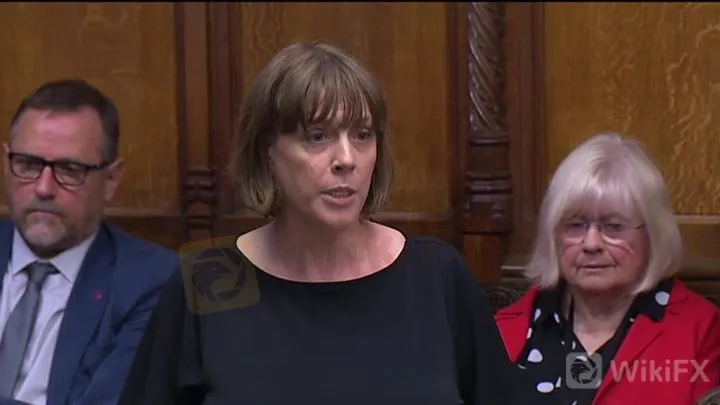简体中文
繁體中文
English
Pусский
日本語
ภาษาไทย
Tiếng Việt
Bahasa Indonesia
Español
हिन्दी
Filippiiniläinen
Français
Deutsch
Português
Türkçe
한국어
العربية
Do MPs need to mind their language?
Abstract:Media playback is unsupported on your device Media caption"I want to ask the prime minister to apolo

Media caption“I want to ask the prime minister to apologise” - Labour MP Jess Phillips
The sight of MPs hurling insults at each other across the Commons is nothing new - but has the abuse now got out of control? And what, if anything, can be done to calm things down?
For many observers, things reached a new low on Wednesday night when MPs debated Boris Johnson's unlawful suspension of Parliament. The atmosphere was positively toxic.
Labour MP Paula Sheriff called on the prime minister to “moderate” his language and stop referring to the Act of Parliament ordering him to seek a Brexit extension as the Surrender Act.
Referring to murdered Labour MP Jo Cox, she said: Many of us in this place are subject to death threats and abuse every single day.
“Let me tell the prime minister that they often quote his words - surrender act, betrayal, traitor - and I, for one, am sick of it.”
Mr Johnson replied: “Mr Speaker, I have never heard such humbug in all my life.”
Johnson defends language after criticism from MPs
Johnson urged to apologise over Jo Cox comments
The PM went on to claim that the best way to honour the memory of Ms Cox, a Remain supporter, would be to deliver Brexit.
It sparked a backlash from opposition MPs and Ms Cox's family - but the PM has rejected calls to apologise for the remarks.

Media playback is unsupported on your device
Media captionFurious MPs confront Boris Johnson over his language
He has said “tempers need to calm down” and insisted that he “totally deplores any threats to anybody, particularly female MPs”.
But he added: “I do think in the House of Commons it is important I should be able to talk about the Surrender Bill, the Surrender Act, in the way that I did.”
Analysis of Hansard, Parliament's official record, shows that Mr Johnson has never used the word “traitor” in the Commons, as his critics claim.
He has said “betrayal” before, on 15 October this year, when he accused Jeremy Corbyn of “a shameless U-turn and a betrayal of millions of people who voted leave”.
He used the word “betray” in his statement on Wednesday night, saying: “We will not betray the people who sent us here; we will not.”
And of course, intemperate language is used on all sides. Mr Johnson was branded a “tinpot dictator” and a “liar” by opposition politicians - a big no-no in the Commons.
Unparliamentary language
The Speaker will ask any MP who has broken the rules on politeness in the Commons to withdraw their words. Words which have been objected to in the past, according to the UK Parliament website, include:
blackguard
coward
git
guttersnipe
hooligan
rat
swine
stoolpigeon
traitor
So where do MPs go from here?
Politics professor Matthew Goodwin, author of books on populism and UKIP, says both sides in the Brexit debate are guilty of “stretching language to denigrate their opponents”.
“Some people have taken support for Brexit to mean support for dictatorship or made comparisons to the Nazis,” he adds.
Journalists and academics are just as much to blame as MPs, he argues.

Media captionJohnson “deplores threats” against MPs but doesn't apologise for his use of language
“Our language has been very sloppy and lazy - and is actually galvanising the polarisation of the national conversation that we have had around Brexit.”
Most MPs seem to agree that the tone of debate in the Commons - as much as the words used - needs to improve.
But even when they are trying to be on their best behaviour, they can't resist scoring party political points. It is just the way the Commons works.
Stephen Coleman, professor of political communication at Leeds University, says there has been a “loosening up of the way that we speak about official institutional things” in recent decades.
MPs are conscious of how they sound to people watching on TV or social media, but the political language they use is not very flexible or sophisticated.
The PM had, in effect, been blindsided by an “emotional” intervention on Wednesday night, says prof Coleman, when he had been relentlessly hammering away at a political message.
“He was in a strop. It is the kind of thing couples say to each other in the heat of a row.”
But rather than deliberately empowering extremists, who never need an excuse to use extreme language, the PM's strategy, he says, so far as anyone could tell, was to “frame the public conversation” about Brexit - how people talk about it in pubs and cafes.
“What people say to each other in their private conversations is probably the biggest predictor of how they will vote,” he adds.
Disclaimer:
The views in this article only represent the author's personal views, and do not constitute investment advice on this platform. This platform does not guarantee the accuracy, completeness and timeliness of the information in the article, and will not be liable for any loss caused by the use of or reliance on the information in the article.
WikiFX Broker
Latest News
Hackers Charged for $11M Crypto Theft Using SIM-Swaps
Role of Central Banks in the FX Market
FCA Alerts Against Sydney FX
What Makes Cross-Border Payments Easier Than Ever?
Trader Exposes Unethical Practices by STP Trading
Bitcoin Nears $100,000: A Triumph of Optimism or a Warning Sign?
Malaysian Man Loses RM113,000 in Foreign Currency Investment Scam
Mastercard Partners with JPMorgan for B2B Cross-Border Payments
FCA Identifies Clone Firm Exploiting Admiral Markets' Credibility
Coinbase Under Scrutiny Amid Wrapped Bitcoin Delisting Controversy
Currency Calculator


